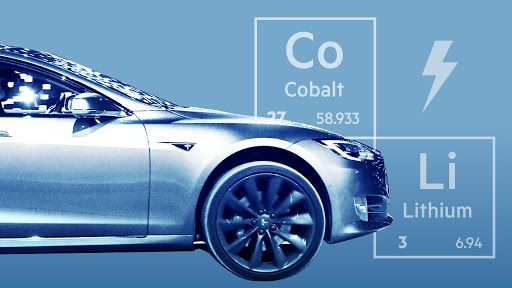The Cobalt Crisis Facing Electric Cars
EVs depend on battery to power them , the battery is depends of cobalt.First it was lithium, now it's cobalt where is the future headed to ? is it really electric? This crisis comes just when the EV mobility is planning to go to mainstream.


EVs depend on battery to power them, the battery is depends on cobalt. First it was lithium, now it's cobalt where is the future headed? Is it really electric? This crisis comes just when the EV mobility is planning to go to mainstream.
The rise of electric car demand all over the globe is rising. It is predicted that will attain four million mark globally this year and rising to 12 million in 2015. In Europe alone, 540,000 electric cars will be sold this year(2020), an increase from 319,000 last year. In order for this to happen it's not just the Gigafactory that is needed the key materials for battery which is cobalt and lithium play a bigger role in ensuring the EV industry prospers. However, these essential materials seem to vanish at the time when the demand for electric cars are going up.
Jaguar Land Rover would pause production on the I-Pace, pinning the blame on shortages at battery maker LG Chem. Paul Anderson, co-director of the Birmingham Centre for Strategic Elements and Critical Materials says "Currently EV uptake is arguably being constrained more by lack of manufacturing capacity than anything else," He added that "Lack of battery manufacturing capacity is a key part of this, which is why there is the rush to build gigafactories."
According to Gavin Harper, research fellow at the Faraday Institution, a battery research group, in 2019 a total of 91 factories which were producing the lithium cell globally and which half of it were already in production the previous year (2018). Therefore, with this in mind it is fine to say lack of gigantic factories is a problem that can be relatively easily solved.
Andrew Leyland, head of strategic advisory at Benchmark Mineral Intelligence says apart from having challenge to find the raw material which are essential for the battery there are other challenges such as trade wars, local protest and rise of human rights and environmental concerns which might cause under supply of the EV.
Lithium mines also face protests from farmers in Portugal and indigenous communities in Chile, locking mining efforts in the country, raising questions not only of supply but ethics — with both challenges faced by cobalt. Unlike lithium, much of cobalt is found in one place, the Democratic Republic of the Congo (DRC) which totals to 59 percent of the world's supply is sourced from that country. Among many concerns, there's evidence of widespread use of child labour, and last year tech companies were sued for their alleged role in the death and injury of children.
Read: Child labour in Africa for EVs?
Then there’s the harsh economics: cobalt is also one of the most expensive metals in EV batteries, costing between $33,000 and $35,000 per tonne. Research from MIT suggests there's not enough ability to mine and process the material to meet demand. The research suggests that demand could reach 430,000 tonnes in the next decade, which is 1.6 times today's capacity.
After analyzing all these challenges, a giant Chinese manufacturer, Contemporary Amperex Technology (CATL), already produces batteries that use phosphate instead of nickel-cobalt-aluminum or nickel-manganese-cobalt combinations. That's attracted the attention of Tesla, the company is planning to add lithium iron phosphate batteries to its options.
In 2018, Tesla CEO Elon Musk pledged that his company would stop using cobalt in the next generation of batteries, but the deal in China is likely for shorter-range cars, as phosphate batteries don't have the same capacity as cobalt ones. We're going to need better batteries, or fix cobalt, if EV sales are going to continue to soar.
Recycling is also an issue at hand, we know batteries are threat to the environment once they are worn out therefore if other material are brought will they salvage the battery crisis as well as care for the environment? It will take some time before significant numbers of EV batteries reach the end of life for this to be a resource, supplies for manufacturing EV batteries will have to come from primary resources, but we believe recycling will have a crucial role to play in the future, providing materials for our automotive industry.
The EV mobility industry has to come up with a solution before the problem becomes unmanageable.




